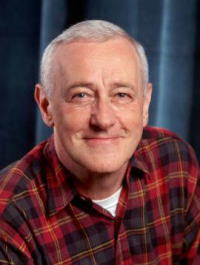
Yesterday, here at the
NCSC conference, I attended a workshop about Catholic social teaching on
immigration issues and care for refugees.
The session was led by Marie Dennis, a laywoman and mother of six who directs the
Maryknoll Office of Global Concerns and is the new co-president of
Pax Christi International. She's a Pittsburgh native, too.
When the magi had departed, behold, the angel of the Lord appeared to Joseph in a dream and said, “Rise, take the child and his mother, flee to Egypt, and stay there until I tell you. Herod is going to search for the child to destroy him.”
Joseph rose and took the child and his mother by night and departed for Egypt. He stayed there until the death of Herod, that what the Lord had said through the prophet might be fulfilled, Out of Egypt I called my son.
When Herod had died, behold, the angel of the Lord appeared in a dream to Joseph in Egypt and said, “Rise, take the child and his mother and go to the land of Israel, for those who sought the child’s life are dead.”
He rose, took the child and his mother, and went to the land of Israel. But when he heard that Archelaus was ruling over Judea in place of his father Herod, he was afraid to go back there. And because he had been warned in a dream, he departed for the region of Galilee.
He went and dwelt in a town called Nazareth, so that what had been spoken through the prophets might be fulfilled, He shall be called a Nazorean.
 Is Congressman Ron Paul headed for an impressive double-digit turnout in the New Hampshire presidential primary?
Is Congressman Ron Paul headed for an impressive double-digit turnout in the New Hampshire presidential primary? Not far from the hall was the
Not far from the hall was the  Only about five years old, this modern cathedral is an awesome place. While its imposing boxy exterior may give some initial pause, the cathedral's interior design and works of art work are tremendous -- starting with its "
Only about five years old, this modern cathedral is an awesome place. While its imposing boxy exterior may give some initial pause, the cathedral's interior design and works of art work are tremendous -- starting with its "
 (Shown here are, left to right,
(Shown here are, left to right,  It was the kind of old school memorabilia-laden place any Pittsburgher would feel right at home. (Their Cole slaw was, however, a side dish and not
It was the kind of old school memorabilia-laden place any Pittsburgher would feel right at home. (Their Cole slaw was, however, a side dish and not 













 ... became this much loved and venerated saint in northern Europe ....
... became this much loved and venerated saint in northern Europe .... ... and later transformed into our jolly old elf here in America ...
... and later transformed into our jolly old elf here in America ...




 Kevin, now a graduate student in theology at
Kevin, now a graduate student in theology at 




 The small town of
The small town of 










